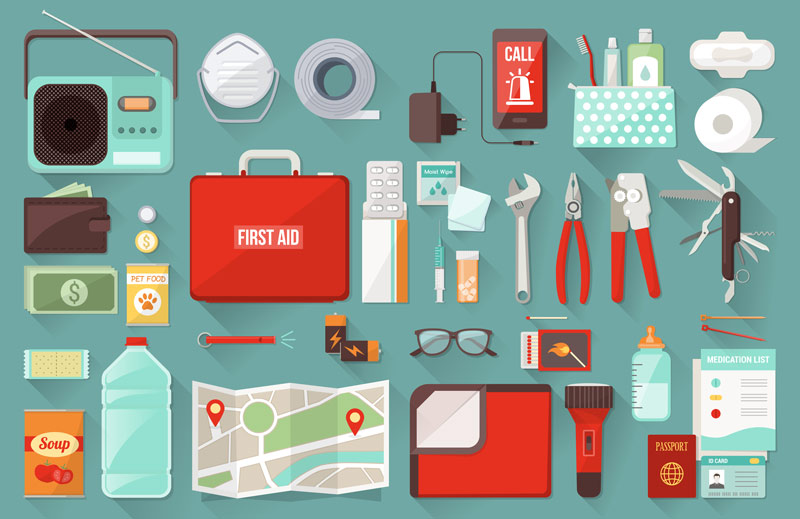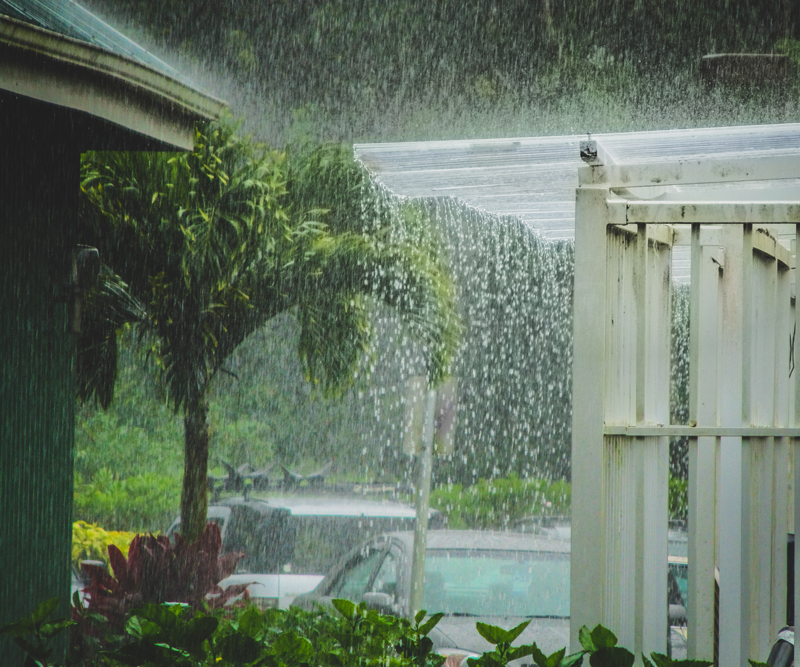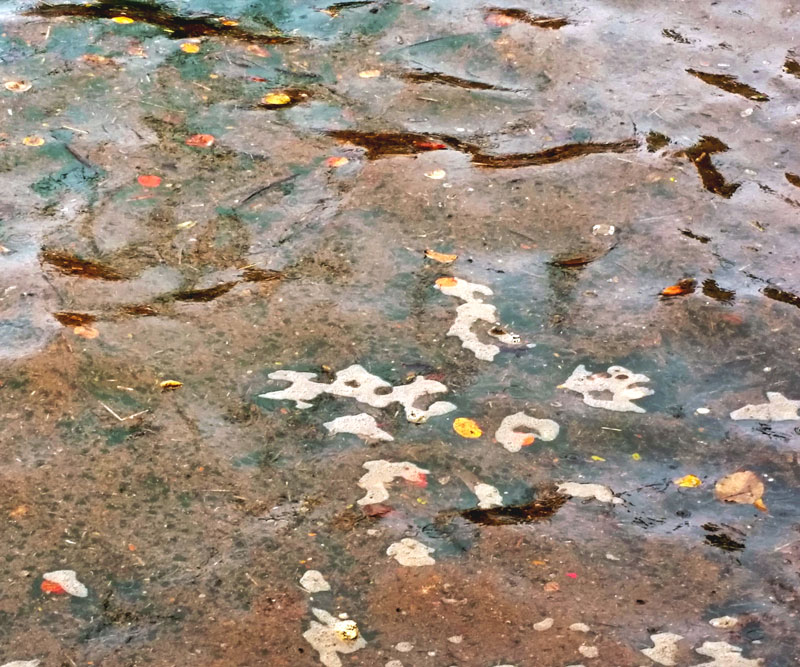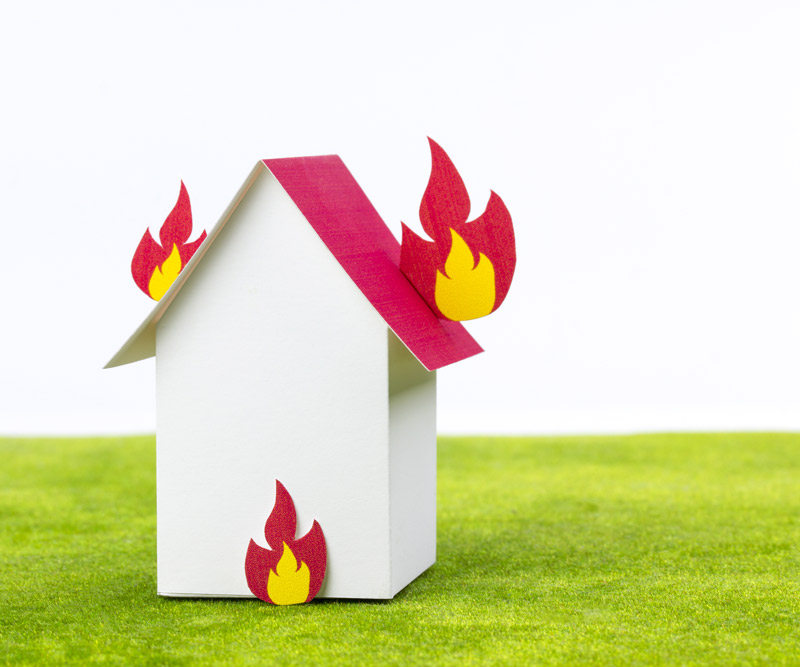
A Well-Stocked Safety Kit is Key to Surviving a Natural Disaster
Hawaii is a tropical paradise, but it is not immune to the effects of natural disasters.
Hurricane season in the Central Pacific Region, which includes the Hawaiian Islands, begins June 1 and lasts through Nov. 30.
But a natural disaster can strike any time of year, often without warning.
“Natural disasters do not follow a calendar,” says Tony Miranda, security manager and safety officer at Kapiolani Medical Center for Women & Children.
“Some natural disasters are more likely to occur during certain times of the year, just like we are in hurricane season right now, but other disasters come with only a little bit of warning,” Miranda continues. “For example, we may only get a few minutes’ notice of a tsunami, and yet others, like earthquakes, come with almost no warning.
“Luckily, you can prepare for most types of disasters in the same way.”
Miranda and other Hawaii Pacific Health safety officers advise that the best way to be ready for the potential threat of a natural disaster is to have a well-stocked preparedness kit.
“Preparedness kits contain the supplies you and your family need to stay safe. They should be specific to your family,” Miranda says.
Keep a kit prepared at home, and consider having kits stored in the car and at work. Also pack a portable version and keep it at the ready in the event you need to evacuate your home.
Items necessary for all basic home preparedness kits include the following:
- Water, at least 1 gallon, per person, per day (to last for at least three days).
- Nonperishable food to last at least three days (select items that require no preparation, refrigeration or cooking).
- Manual can opener.
- Ice chest.
- First aid kit.
- Prescription medications and medical equipment/care aids.
- Pillows, blankets, sleeping bags, extra clean clothes.
- Sanitation supplies, such as moist towelettes, garbage bags and plastic ties.
- Hand-crank or battery-operated flashlight, radio and cell phone charger, plus extra batteries.
- Cash.
- Important documents, including wills, medical and financial power of attorney, property documents and medical instructions.
Additional personal considerations could include:
- Infant formula and diapers.
- Pet supplies, including food, water, medication, leash/travel case and ownership documents.
- Special items for elderly or disabled family members.
- Disinfectant.
- Matches or flint, in a waterproof container.
- Fire extinguisher.
- Paper and pencil.
- Books, games, puzzles, toys and other quiet activities for children.
Evaluate your kits and their relevance routinely. Throw away and replace any expired or damaged medications, food or water.
In the event of a hurricane or other natural disaster, remember to:
- Listen to your radio or television to keep yourself apprised of the latest weather developments.
- Make any home preparations that you think are necessary.
- Follow police and fire department instructions, especially if you are directed to evacuate.
“During a natural disaster, it is important not to panic,” Miranda stresses. “Do not go outside during an earthquake, hurricane or tsunami, and remember to stay away from windows or glass. Be prepared to evacuate, if needed, and always listen to the instructions of local government or safety officials.”
If you do head to a shelter, you should:
- Bring your emergency kit.
- Keep the family together and leave a note for those not at home to let them know where you have gone.
- Turn off water, gas and nonessential electricity.
- Ensure that your family and neighbors are aware of the need to evacuate. Assist them as needed.
- Leave valuables at home in a safe.
- Secure your house.
- Put all medication in a clear zip-top bag and bring it with you.
- Bring cellphones/chargers.
“Information is your greatest advantage during a disaster,” Miranda says. “Try to maintain your access to a radio or television to be aware of any situational updates. Be sure you are getting your information from a trustworthy source and that you react to it appropriately.”
Useful resources that the team of Hawaii Pacific Health safety officers and Emergency Management coordinators rely on include:
- Ready.
- Central Pacific Hurricane Center.
- Weather Underground.
- Honolulu Department of Emergency Management.
- Hawaii Department of Emergency Management.
Find evacuation and shelter information in your local telephone book or on the Hawaii State Civil Defense website.
A free disaster preparedness handbook created by the Hawaiian Electric Company also can be downloaded online.
Published on: May 23, 2022




